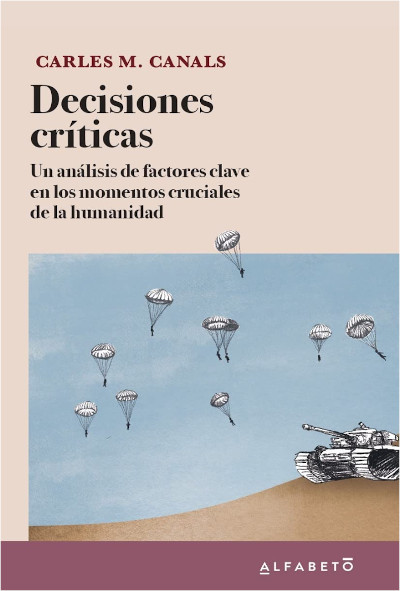In the picture
Rules to be taken into account by every ruler based on the successes and mistakes of a century of conflicts
In the age of artificial intelligence, when technological advances seek to apply intelligent automatisms also to decision-making processes in the sphere of governance and, in particular, in the field of international politics, Carles M. Canals' book seems to go in the opposite direction and emphasizes the human factor. Of course, the seven cases he analyzes - from the American Civil War in the mid-19th century to the Yom Kippur War in the last quarter of the 20th century - take place at a time when the qualities of the good leader or statesman (the English term 'statecraft' is particularly suggestive, as it refers more directly to the skills that allow the development of 'craftsmanship' in the government of a country) were considered vital in making crucial decisions. Today, we might think, technology has advanced so much, from the detection of parameters enabled by 'big data' to the precision of images that satellites are capable of capturing of tiny objects on the surface of the planet, that it would seem that the human element has lost importance when it comes to making critical decisions. However, this is not the case.
It is true that all these advances often lead to better-informed decisions. But, first of all, in the analysis and interpretation of the data -now, yes, more easily collected-, there is still an irreplaceable task for the human mind. And then, weighing the circumstances and possible consequences; deciphering the psychology of the ally or opponent; assessing the window of opportunity, or prudently alternating firmness and flexibility, are still aspects that are reserved for people and the interaction between them, not for machines, even though they have an increasingly important role to play.
These skills and personal interactions are the focus of 'Critical Decisions'. Canals examines the successes and errors in the decision making of Lincoln or Generals Lee and Grant; the different reading that Chamberlain, Eden or Churchill made of the accumulation of facts that pushed Europe towards a great conflagration, or the influence of Nasser's personality in the nationalization of the Suez Canal and that of Khrushchev in his struggle with Kennedy over the nuclearization of Cuba. It is an enjoyable book, not written for specialists, which is very easy to follow for any reader. The less knowledgeable in contemporary history learns what substantially happened in the seven conflicts covered in the book: the American Civil War (1861-65), 'appeasement' in Hitler's Europe (1936-39), the Korean War (1950-53), the Suez Crisis (1956), the Cuban Missile Crisis (1962), the Six Day War (1967) and the Yom Kippur War (1973). And those who already know what happened, dwell on the considerations that Canals makes on the strategy of the parties and, especially -there is the author's ultimate purpose -, on the decisive elements that contributed to the success or failure of the orders given by the main actors.
The presentation at the beginning of each chapter of a 'dramatis personae' -a box of the key characters involved in each conflict: who they were and what position public they had- and the breakdown in boxes scattered throughout the text of collateral or explanatory aspects outside the main story streamline a reading that is done with pleasure. And in each chapter the reader finds the author's evaluations of the virtue or defect in specific decisions described. Many times -perhaps most of the time- these evaluations are based on the author's own recognition made later in his memoirs by his protagonists, but other times they are the author's own conclusions.
Thus, throughout the book, Canals distributes certain rules that every ruler should take into account, but he does not formulate them in an enumeration with which he seems to be lecturing, but from the common sense that experience imposes and that the cases reviewed confirm. For example, Truman should have acted as a true superior over MacArthur instead of allowing him certain familiarities that convinced the general that he had more leeway to execute his own criteria; Kennedy knew how to exclude himself from the executive committee that he established to follow up on the missile crisis, since its members could freely express their opinions without fear of contradicting the president; Golda Meir had to impose on her Defense Minister and intelligence chiefs to review their information instead of allowing them to take for granted analyses that were based on preconceived ideas that might already have been superseded.

